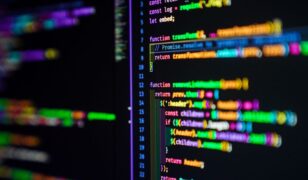Digital Modernization and Artificial Intelligence: How the Federal Government Can Get Ahead

From IC Insider ManTech
By Jordan Atkinson, Data and AI Consultant, ManTech Federal Civilian Sector
In the rapidly evolving digital landscape, two concepts stand at the forefront of technological advancement: digital modernization and artificial intelligence (AI). Both are driving unprecedented transformations across industries and sectors, creating both unparalleled opportunities and novel challenges. Leveraging these technologies effectively is critical to an effective and efficient Federal government that ensures national security by staying ahead of adversaries, improving general welfare through more efficient and effective provisioning of public services, and ensuring personal freedoms through increased transparency and accountability.
Understanding Digital Modernization
Digital modernization refers to the process of updating and optimizing legacy systems, infrastructure, and operations to harness the power of new and emerging technologies. This transformation is essential for organizations, including government entities, to meet the evolving demands of the digital age.
For the federal government, digital modernization encompasses a broad range of activities, from upgrading aging IT infrastructure to cloud adoption and enhancing cybersecurity measures to improving data management. The goal is to create a more efficient, agile, and resilient government that can deliver secure services faster, and with greater accuracy, thereby helping to gain more trust of the people it serves.
One of the key drivers of digital modernization is the need to break free from legacy systems that are costly to maintain, prone to security vulnerabilities, and incapable of meeting modern demands. For example, many federal agencies still rely on decades-old mainframes and software, which limit their ability to adapt to new technologies and processes. By modernizing these systems, agencies can improve efficiency, reduce costs, and enhance the overall user experience for both government employees and citizens.
Understanding Artificial Intelligence
Artificial intelligence (AI) is revolutionizing government operations. Encompassing technologies like machine learning, natural language processing, and computer vision, AI enables automation of routine tasks, freeing personnel for critical thinking. AI also enhances decision making by providing real-time data analysis at speeds surpassing human capability.
The Role of Artificial Intelligence in Modernization
This transformative technology plays a crucial role in digital modernization. AI accelerates modernization efforts by optimizing workflows and informing decisions with data-driven insights. At the same time, digital modernization provides the essential infrastructure for AI to thrive, benefitting from robust IT systems and access to high-quality data. AI also bolsters cybersecurity – a critical aspect of modernization – by enabling real-time threat detection and response to increasingly sophisticated cyberattacks. This proactive security approach is vital for federal agencies entrusted with sensitive data.
AI Applications in Government
AI supports and enhances a broad set of missions across five key domains:
- Public Services: AI can improve the delivery of public services by automating routine processes such as processing applications, handling customer service inquiries, and managing logistics. For example, AI-powered virtual agents can provide citizens with real-time information and assistance, reducing the burden on human staff and improving service efficiency.
- Data Analysis and Decision-Making: Government agencies collect vast amounts of data, from census data to economic indicators to public health information. AI can analyze this data to uncover patterns, predict trends, and inform policy decisions. ManTech provides Customs and Border Protection (CBP) with AI-driven predictive analytics to help the agency identify public and homeland security threats in International traveler and trade environments and through our Ports of Entry to help officers spot threats and take enforcement actions to protect the public.
- National Security: AI can enhance national security efforts by improving intelligence analysis, automating threat detection, and enhancing decision-making in defense operations.
- Healthcare: AI improves public health outcomes by analyzing healthcare data to identify trends, predict disease outbreaks, and optimize resource allocation., During the COVID-19 pandemic, AI was used to track the spread of the virus, predict hotspots, and assist in vaccine distribution.
- Transportation and Infrastructure: AI can optimize traffic management, improve public transportation systems, and enhance infrastructure maintenance by predicting when repairs are needed. For example, AI-powered systems can monitor traffic flow in real-time and adjust signals to reduce congestion.
Challenges to Implementation
While the benefits of digital modernization and AI are clear, there are significant challenges to implementation that the federal government must address:
- Legacy Systems: Many federal agencies still rely on outdated systems that are not compatible with modern technologies. Replacing these systems can be costly and time-consuming, requiring significant investment and coordination across agencies. Yet digital modernization is critical to successful AI deployments.
- Data Management: AI requires access to high-quality, well-organized data. However, many government agencies struggle with data silos, inconsistent data formats, and poor data quality. Improving data management practices is critical to unlocking the full potential of AI.
- Cybersecurity: As the government adopts more digital technologies, the risk of cyberattacks increases. Ensuring robust cybersecurity measures are in place is essential to protecting sensitive data and maintaining public trust.
- Workforce Skills: Successful implementation of AI and digital modernization initiatives requires a workforce with the necessary skills for both. However, many government employees lack the expertise needed to work with these advanced technologies. Investing in workforce training and development is critical to overcoming this challenge.
- Ethical and Regulatory Considerations: The use of AI in government raises important ethical and regulatory issues such as ensuring transparency in AI decision-making, preventing bias in AI algorithms, and protecting citizen privacy. The government must develop clear guidelines and frameworks to address these concerns.
- Policy Trailing Technology: Without clear policy set by lawmakers, there is confusion about the rules around adopting AI, especially with Generative AI. Lack of clear policy has a detrimental effect on the adoption of AI as a “play it safe” mindset can dominate, slowing the pace of adoption.
- Rapid Pace of Change: The pace of technological change in the AI ecosystem makes procurement and adoption a challenge. It is difficult to predict the necessary infrastructure and human resources that will be needed to accuratelyforecast budgets which can result in misaligning resources with mission needs.
How the Federal Government Can Get Ahead
To stay ahead of the curve in digital modernization and AI, the federal government can take several key actions:
- Develop a Comprehensive Digital Modernization Strategy: Continue to build upon the 21st Century Integrated Digital Experience Act (IDEA) and the Federal IT Operating Plan and develop a comprehensive strategy that outlines its digital modernization goals, identifies key technologies for investment, and sets clear timelines for implementation. This strategy should prioritize the replacement of legacy systems, embrace cloud adoption, and enhance cybersecurity measures including the ability to operate in a Zero Trust environment.
- Invest in AI Research and Development:Strengthen its relationship with private companies, where most of the AI research is being done, and continue to foster and incentivize an America-first approach when it comes to the full AI technology stack to ensure the federal government remains at the forefront of AI innovation.
- Improve Data Management Practices: Prioritize improving data management practices to support AI initiatives. This includes continuing investments in data infrastructure, breaking down data silos, modernizing and ensuring that data is high-quality, well-organized, and accessible across agencies. Each Agency Chief Data Officer must continue to make this a priority while pushing to adhere to the requirements of the Open, Public, Electronic and Necessary Government Data Act of 2018 (OPEN Government Data Act).
- Enhance Workforce Training and Development: Invest in workforce training and development programs to successfully implement AI and digital modernization initiatives. This includes providing employees with the skills needed to work with AI technologies, as well as recruiting and hiring new talent with expertise in AI and digital transformation with pay, benefits, and interesting work that rivals that what the private sector offers. A strong example has been set by the General Service Administration’s (GSA) IT Modernization Center of Excellence, which maintains a persistent focus on “developing and retaining AI talent” for the agency.
- Establish Ethical Guidelines for AI: The government has started this effort with the 2020 Executive Order on Trustworthy AI and the AI Bill of Rights. The government should continue its focus on establishing clear ethical guidelines and regulatory frameworks for the use of AI. This includes ensuring transparency in AI decision-making, preventing bias in AI algorithms and protecting citizen privacy. By developing these guidelines, the government can build public trust and ensure that AI is used responsibly.
- Plan for AI to Disrupt Existing Contractor Relationships: As AI continues to evolve, it presents a transformative opportunity to streamline digital modernization efforts within the federal government. AI’s capabilities can significantly simplify the development of legacy replacement applications, reducing the need for extensive developer teams. Tasks that previously required a full team of developers may soon be handled by a single individual, thanks to AI’s efficiency. Over the next five years, it is crucial for the government to closely monitor and understand the productivity impacts of AI. By doing so, new standards and contract structures can be designed to unleash the transformative power of AI.
About ManTech
 ManTech is a leading mission and enterprise technology provider that powers AI, full-spectrum cyber, data collection & analytics, high-end digital engineering and software application development solutions that support national and homeland security. Additional information on ManTech can be found at www.mantech.com.
ManTech is a leading mission and enterprise technology provider that powers AI, full-spectrum cyber, data collection & analytics, high-end digital engineering and software application development solutions that support national and homeland security. Additional information on ManTech can be found at www.mantech.com.
About IC Insiders
IC Insiders is a special sponsored feature that provides deep-dive analysis, interviews with IC leaders, perspective from industry experts, and more. Learn how your company can become an IC Insider.








